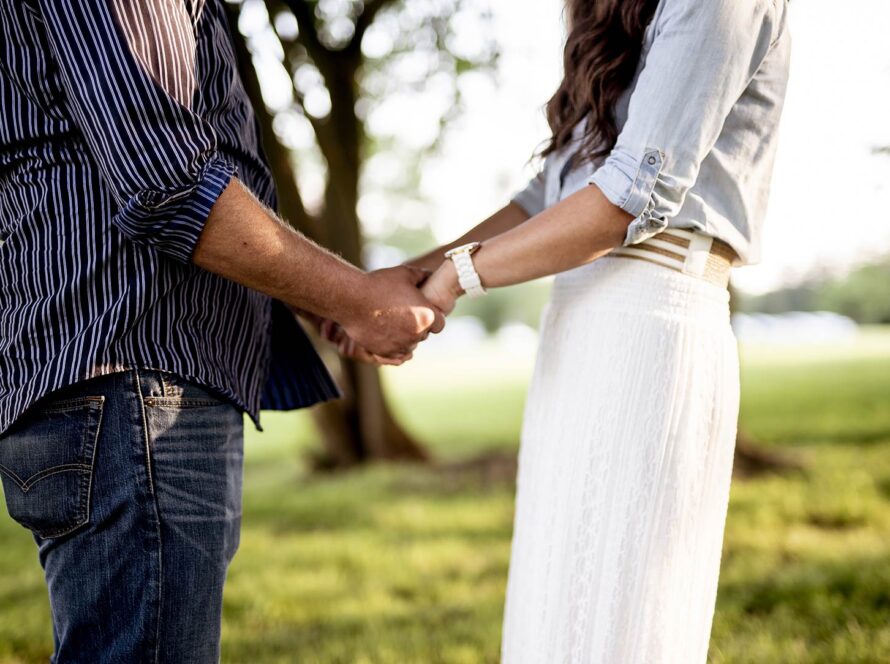
I’m extremely aware that there are many different factors that contribute to heartbreak. In most cases, this profound experience has to do with loss, and this loss is significant, deep, and life-changing. Consider the loss of connection to a close friend who moves away, the loss of a career opportunity, the loss of a dream to be married with 2 kids by 35, the loss of the expectation that our child would be healthy, and the death of a loved one. There are many paths to heartbreak and just as many ways to experience it. As our connections, dreams, hopes, expectations, and desires are severed, we experience substantial change, devastating adjustments, heart-wrenching grief, and sometimes, gut-wrenching longing or loneliness. No amount of time or money can erase or avoid the immense impact of these losses. Heartbreak from the end of a romantic relationship can be one of the more powerful experiences on this spectrum.
The brain is the only organ in the human body that grows from past events. From a neurological perspective, the emotion of love is one of the most powerful experiences we can have. When we feel love, our brains create heightened levels of hormones like dopamine, vasopressin, and oxytocin (Diamantaras, 2014). These hormones create pathways that trigger memories, both conscious and subconscious, and their attached feelings. So how does this affect us? Well, depending on your past experiences and brain chemistry, some people fall in love quickly and others more slowly. Some love the idea of being “in love”, but when they are in a relationship, they shut down or distance themselves from potential intimacy, while others may become clingy. Often, the generic term for these behaviours is “having baggage”, but it is really so much more than that. These are years of hormones, emotions, memories, and experiences from our past influencing our present behavior and changing how we engage with our future.
No wonder “being in love” is such an intensive, immersive emotional experience. Depending on how we interact with our person of interest and how they respond, we may find ourselves experiencing excitement, giddiness, anticipation, fear, hope, courage, despair, helplessness, vulnerability, desire, exhilaration, ecstasy, and, unfortunately, pain. Love is a deep, intense experience that engages our neurochemical, emotional, physical, and psychological being. In acknowledging this, it becomes easier to understand how the severing of such an intense experience can be deeply rooted, long-lasting, and difficult to fully “get over.”
Yet too often, others are skeptical or minimizing of our experiences; almost waiting to see our “lovey” feelings come to an end. See if you’ve heard of, or thought, some of the following: “Oh, you’re just infatuated!” – “You’re in the honeymoon phase – it’ll end!” – “Yeah, I used to feel that way at one time… Enjoy it while it lasts…” Consider the alternative statements for when individuals fall “out of love”. Those surrounding us can be quick to bypass the experience and encourage us to “get over it.” I’m sure several of these are familiar: “There is plenty of fish in the sea.” – “You just have to get back out there.” – “Don’t worry he/she wasn’t the one…” – “You’ll be okay – Here, have a drink!” or “I told you so”. But it’s incredibly important that we honor the experienced depth of love and look beyond the one-sentence minimization that we receive from our friends and family. While armed with good intentions, it is incomprehensible for others to fully fathom what our heart feels – an incredibly unique, intense, all-encompassing experience that cannot be truly communicated in words.
Give yourself permission to take all the time you need to experience and work through heartbreak. There is no “right way” to process it or get through it. There is no “right amount of time” to grieve and say goodbye to the things or people we’ve lost. It takes us through a very intense journey back to a place where there’s a willingness to open up again. While I acknowledge and believe in the devastating nature of heartbreak, I also believe that broken hearts can be healed. Yes, maybe it’s part of my job as a therapist to uphold such optimism, but more importantly, I choose to remember my own journeys through heartbreak. It was messy, as heartbreak usually is, but it was a journey that has ensured that my life and heart are still beating, striving, and open for the next true, authentic experience of love.
Charite Neuroscience (2014). Newsletter by the international graduate program of medical neuroscience Vol. 7, Issue 2.



